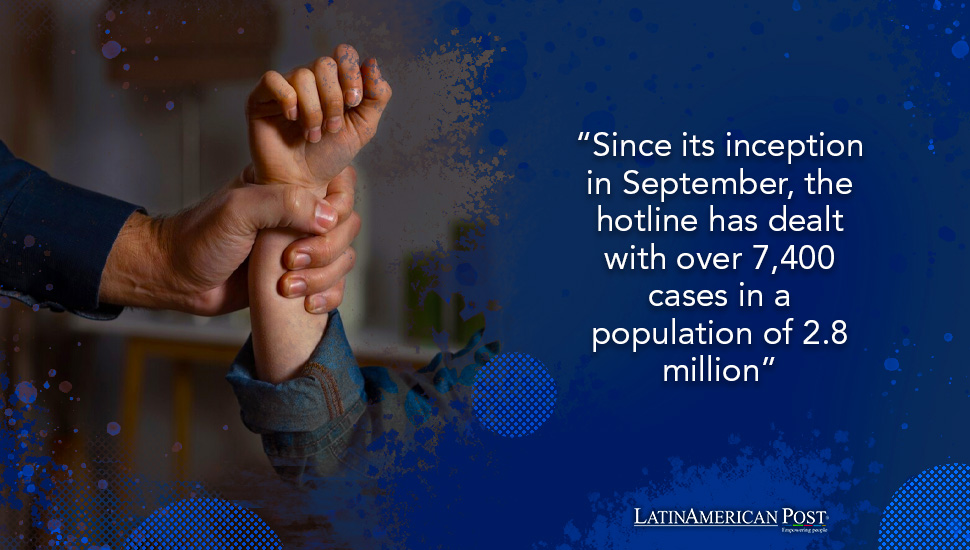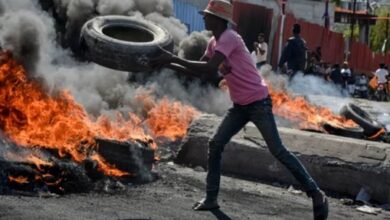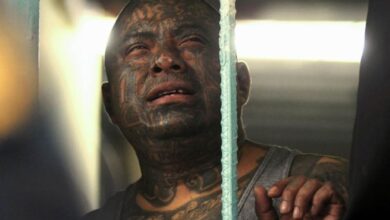Jamaica’s Bold Steps to Combat Domestic Violence is A Historic Move

Jamaica’s recent strengthening of domestic violence laws marks a pivotal shift in the Caribbean, aiming to offer better protection and support for victims on the island.
Jamaica Takes Historic Step Against Domestic Violence
In a historic move, Jamaica has adopted more robust domestic violence laws, signaling a significant stride in the ongoing battle against intimate partner violence in the Caribbean and Latin American context. This development reflects Jamaica’s commitment to addressing a pervasive issue that has long been shrouded in silence and stigma.
The amendments, approved by Jamaica’s Senate in late December, bring much-needed reforms. Protection orders now encompass harassment and property damage. More strikingly, the penalty for violating these orders has escalated dramatically from a mere $65 to $6,450, with the possibility of a one-year prison sentence. Such a substantial increase in penalties indicates a severe commitment to deterrence and enforcement.
Expanding the Reach of Protection Orders
Furthermore, the legislation expands the scope of who can request protection orders. Now, spouses or parents of threatened individuals, social workers, and children’s advocates can apply for these orders, mainly when they involve children. This expansion recognizes the vital role of community and support networks in safeguarding victims.
Jamaica’s approach resonates deeply with the broader Caribbean and Latin American region’s history of grappling with domestic violence. Cultural norms and societal attitudes have often hindered open discussions about domestic abuse in these societies. In many instances, a mix of machismo culture, economic dependency, and lack of legal support has perpetuated a cycle of silence and suffering among victims.
A Regional Issue: High Rates of Domestic Violence
Historically, the Caribbean and Latin American countries have struggled with high rates of domestic violence. According to the United Nations, Latin America and the Caribbean are home to 14 of the 25 countries with the highest rates of women being murdered in the world. This stark reality underscores the urgency of Jamaica’s legislative reforms.
The Jamaican government’s plan to expand a domestic violence hotline and open more shelters is commendable. Since its inception in September, the hotline has dealt with over 7,400 cases in a population of 2.8 million. This high number reveals the hidden magnitude of domestic violence on the island. The fact that males reported a significant proportion of these cases also challenges the stereotype that domestic violence is a purely female issue, highlighting its broader impact on society.
These steps are particularly crucial in a region where reporting domestic violence is often hindered by societal pressure and fear of retribution. The Caribbean has long faced challenges in providing adequate support and protection for domestic violence victims. The lack of shelters, inadequate police training, and societal attitudes have often left victims with nowhere to turn. Jamaica’s initiative to provide special training to police is, therefore, a critical component in ensuring that law enforcement officers are equipped to handle such sensitive situations effectively and empathetically.
Socio-Economic Factors and Regional Impact
Historical context shows that domestic violence in the Caribbean and Latin America has often been exacerbated by socio-economic factors such as poverty, inequality, and social instability. Jamaica’s proactive measures can serve as a beacon for neighboring countries grappling with similar issues, demonstrating that legislative reform and support systems can create a safer environment for victims.
The broader implication of Jamaica’s legislative reform goes beyond the immediate benefits to victims. It represents a cultural shift and a break from the historical tolerance of domestic violence. By setting an example, Jamaica challenges other nations in the region to confront and address this issue head-on, paving the way for a collective regional response to domestic violence.
Also read: Latin American Countries as Pivotal Players in Global Peacekeeping
Jamaica’s recent strengthening of its domestic violence laws is a landmark step in the right direction. It provides better protection for victims and sets a precedent for the Caribbean and Latin American countries. These measures, enriched with historical and regional context, highlight the importance of robust legal frameworks, societal support structures, and cultural shifts in addressing the scourge of domestic violence.
Jamaica’s bold move is a beacon of hope, signaling a possible turning point in the long-standing battle against intimate partner violence in the region. As these initiatives unfold, they will undoubtedly have a ripple effect, inspiring similar reforms across neighboring countries and contributing to a safer, more equitable society.





